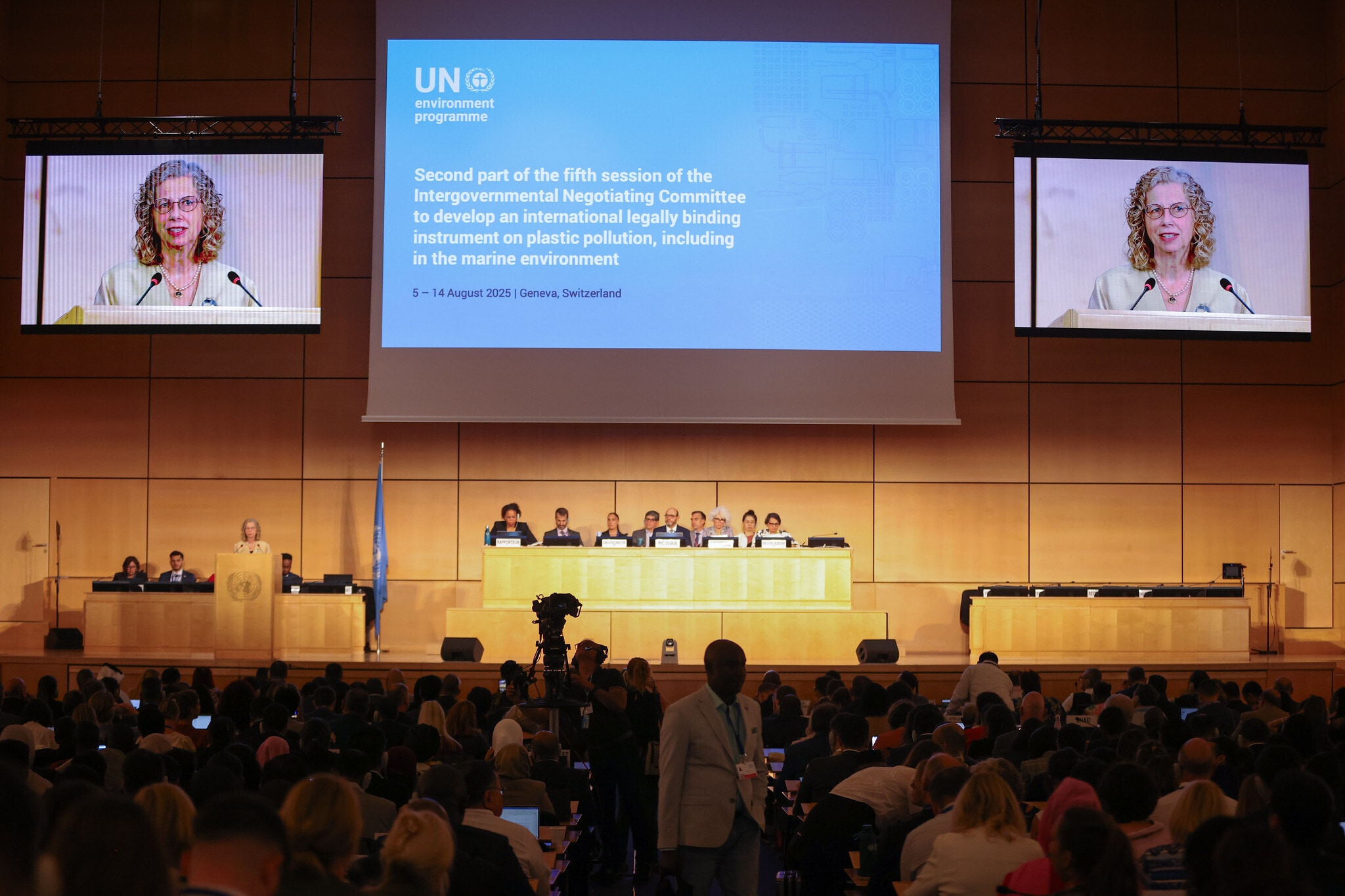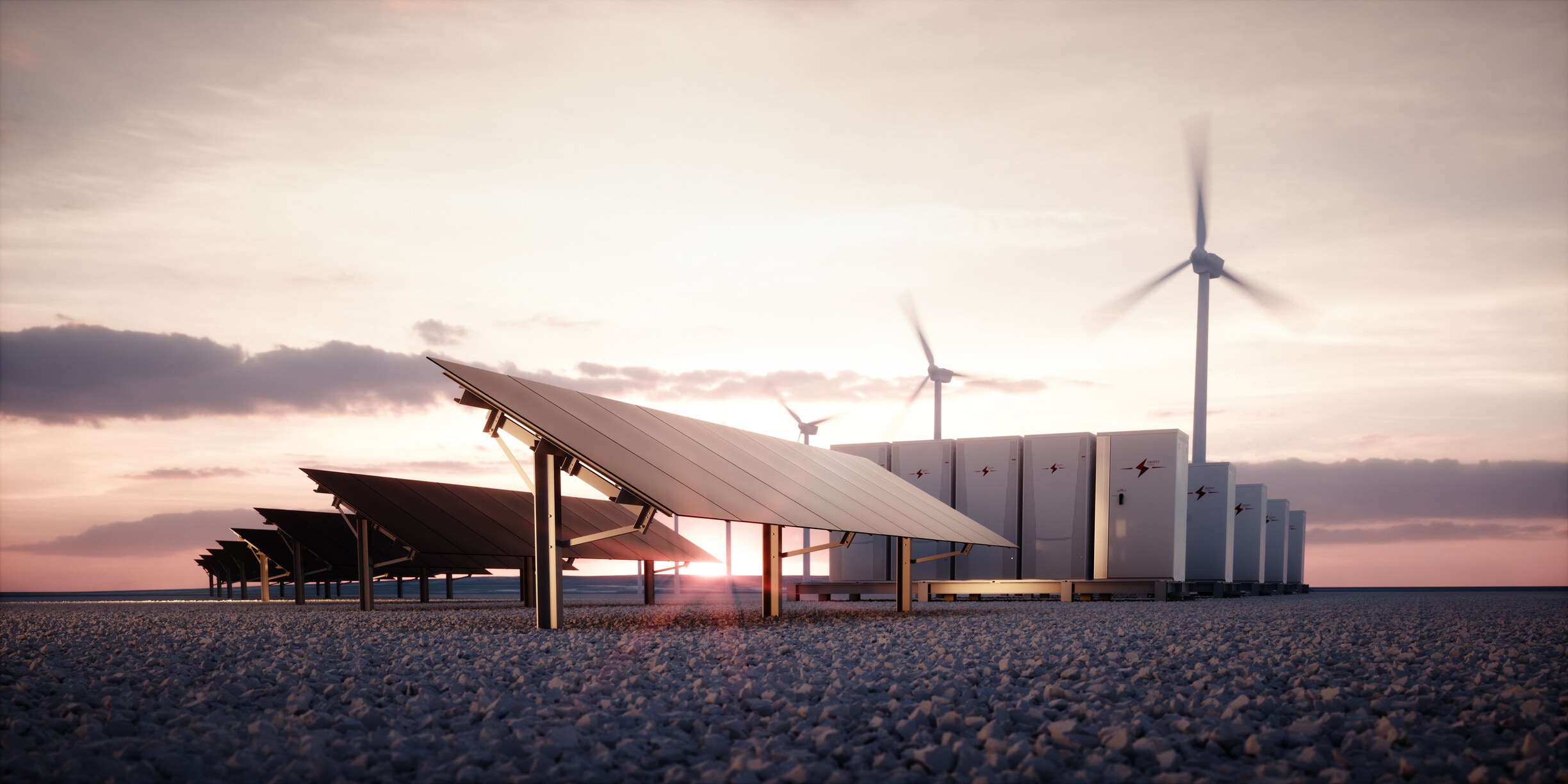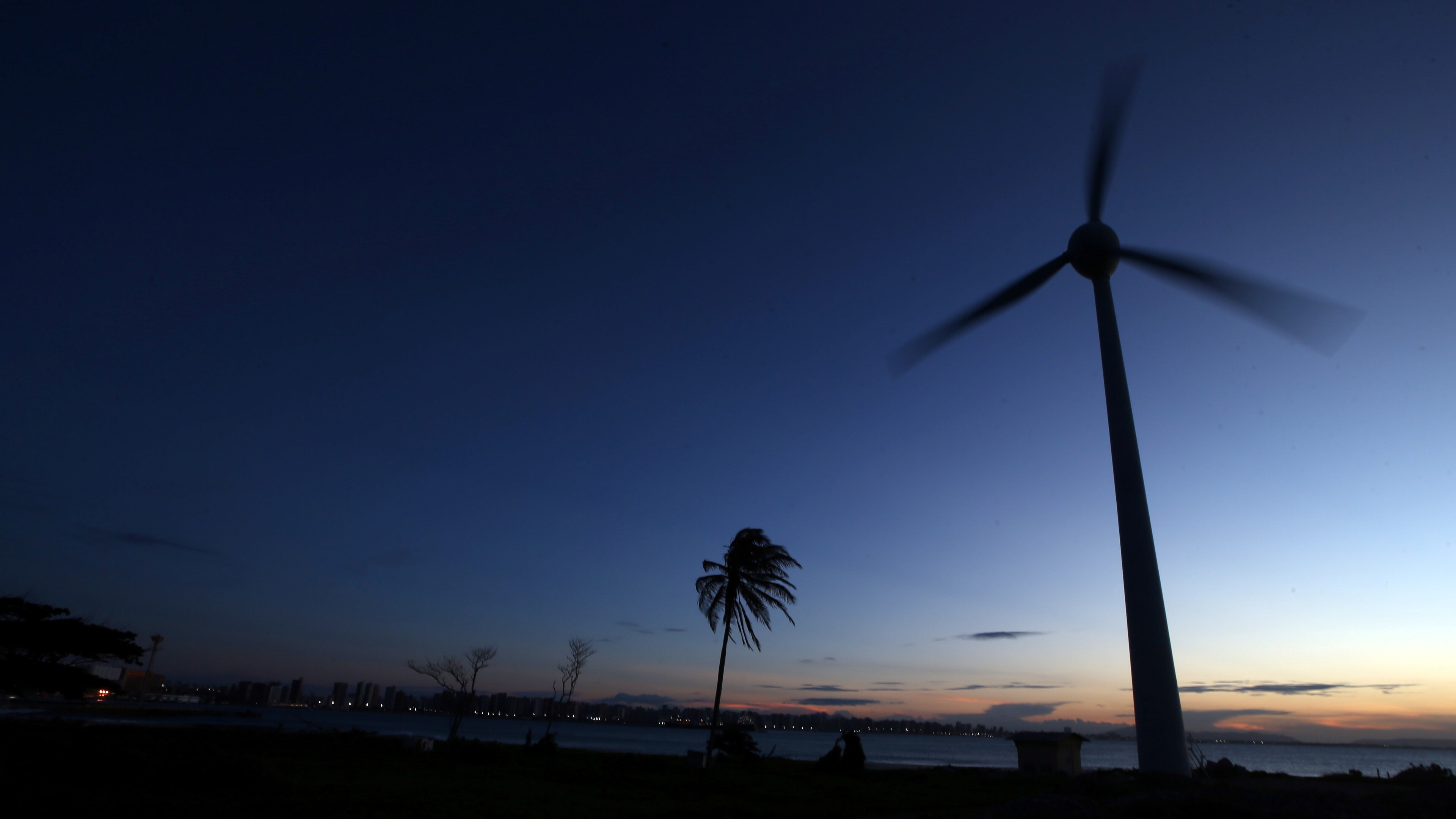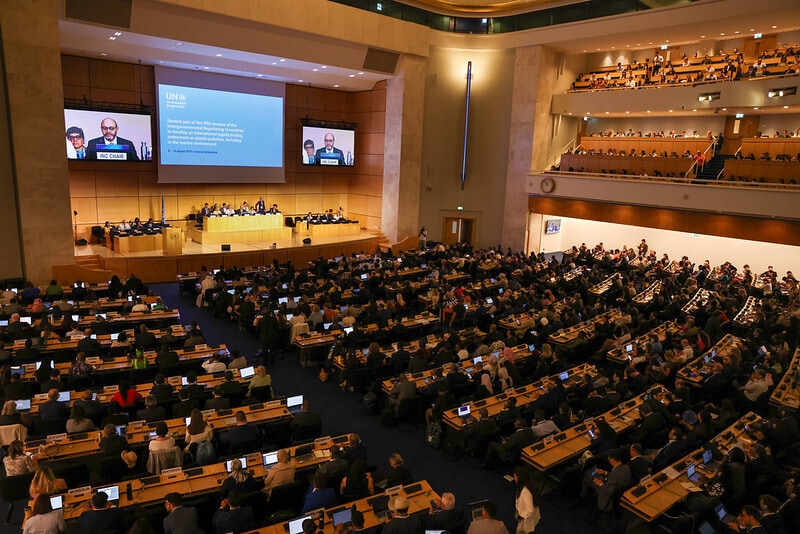It’s time to recognize climate change as a disability rights issue
Climate change is affecting disabled people and yet is not being recognized as a disability right issue.
Image: REUTERS/David Mercado
Stay up to date:
Climate Crisis
“What are you doing here?”
I’ve been thinking about my answer to this question over the past few weeks. I’m the founder of a social enterprise focused on disability inclusion who was one of the 50 World Economic Forum Global Shapers selected to attend Former U.S. Vice President and Nobel Laureate Al Gore’s 36th Climate Reality Leadership Corpstraining. Many of my peers who joined me there are working on some incredible projects addressing the climate crisis, from consulting climate-tackling startups in NYC to starting a recycling program in Kazakhstan.
I felt a little out of place.
Why me? Why was I selected to be here?
On a local level, I’ve been thinking about the Northern California fires and their impact on San Francisco’s air quality. San Francisco also had its hottest day on recordin early September at 106 degrees Fahrenheit.
But where does the disability community fit into all of this?
When issues like discrimination, access to adequate healthcare, unemployment, and poverty are among our top concerns, climate change tends to be an afterthought. When we are fighting for basic human rights and equality, how do we have time to think about climate change?
Being concerned about and fighting for climate justice is a privilege.
What I learned was that we–the disability community–are the ones who need to be at the forefront of this movement. When it comes down to it, climate justice is about people and climate change is a human rights issue. Climate change impacts vulnerable communities like mine the most. Opportunity and justice cannot be an afterthought.
Here’s what we know:
The scientists agree, climate change is real and causing problems for us.
Global temperatures have been increasing. 16 of the 17 hottest years on record have occurred since 2001. The largest source of global warming pollution is the burning of fossil fuels to drive cars, generate electricity, and operate our homes and businesses.
Extreme weather has created unprecedented heat, flooding, and drought, which puts a strain on my community’s well-being. Mobility, hearing, learning, or seeing disabilities can create specific needs that require extra time or consideration in an emergency evacuation, especially as accessible options become limited.
Alex Ghenis from the World Institute on Disability, who has done a lot of work on the issue of climate change and disability, mentioned that there isn’t much research available around concrete numbers related to climate change’s impact on our community, but is hopeful this will change as more resources are dedicated to climate research.
Heat
Extreme heat events cause more deaths annually in the U.S. than all other extreme weather events combined. Some members of the disability community are especially vulnerable to extreme heat events due to increased sensitivity to keeping our body temperatures cool enough. For example, people with multiple sclerosis have been shown to experience greater pain and fatigue on hot days, and some people with spinal cord injuries don’t have the ability to sweat as a means of cooling down. As such, extreme heat poses physical danger to many disabled people.
Hurricanes
Climate change does not cause hurricanes to form, but the hotter surface water temperatures make the hurricanes stronger. This poses a strong threat to the safety of the disability community. For instance, in 2005, almost half of deaths from Hurricane Katrina were people over age 75, with over 10% of total deaths occurring in nursing homes. Most of those individuals had medical conditions and disabilities that made them vulnerable to the extreme weather conditions. More recently, hurricanes Harvey, Irma, and Maria were even more intense, creating heavier downpours, causing sea levels to rise, and staying in place longer. These hurricanes have left millions without electricity (34% of Puerto Rico is without electricity more than two months after the hurricane), which is especially problematic because so many disabled people need electricity-powered medical equipment to survive.
Droughts
The same extra heat that causes more water to evaporate from the ocean, causing bigger downpours and floods, also pulls moisture even more quickly from the soil, causing longer and deeper droughts. This causes food and water insecurity in many parts of the world. Because of other social factors like the disproportionate number of disabled people who are caught in an endless poverty cycle, the disability community is especially vulnerable during these shortages.
Fires
Hotter temperatures have also caused wildfires to increase and intensify. More than 5,000 homes and businesses have been destroyed by the Northern California fires, making it the most destructive wildfire in the state’s history. Many of the hundreds of people who are still unaccounted for in the fire area could be some of our community members, who lack a strong support network. Recovery efforts in the aftermath of the wildfires include the establishment of the Richard Devylder Disaster Relief Fund by the California Foundation for Independent Living Centers for survivors who lost their critical mobility and accessibility devices in the fires (wheelchairs, scooters, walkers, canes, hearing aids, communication devices).
Displacement
Extreme temperatures and disasters have caused and will continue to cause some regions to become uninhabitable, leading to pressure to migrate and creating climate refugees, driving people into already crowded cities. Displacement negatively impacts our daily lives, because we need access to health services and long-term medical, financial, and social support. Moreover, displacement can cause psychological distress or trauma.
And if we are not able to migrate, we are often part of the vulnerable communities that are left behind. That’s when we see environmental injustice and racism, where our communities are placed in the proximity of environmentally hazardous or degraded environments, such as toxic waste, pollution and urban decay.
Where you live is the most important social determinant of health.
It impacts the kind of food you eat, your water supply, and the air you breathe. Everyone’s (disabled or not) pulmonary function is affected by air pollution. There are places where smog, ozone, and fine particular matter from unconventional natural gas development (fracking) and coal have drastic health impacts, like increased cases of contaminated water, asthma, bronchitis, and pneumonia and decreased life expectancy. Air pollution also affects mental health and cognitive ability, especially in children.
What can we do?
Over the course of my time at the Climate Reality Leadership Corps training, I came to realize that environmental issues and disability rights go hand in hand. Extreme heat, air pollution, and lack of green spaces impact our physical and mental health.
And finally, it made sense why I was at the training. My community needs to be here. We need to be represented. These conversations are happening, and we need to have a seat at the table. We need to have a voice.
Here are some everyday things we can do:
Do your research. A good place to start is at New Earth Disability, an initiative of the World Institute on Disability. Talk to others about the realities of what is happening in the world. Our country’s top leader is one of the biggest critics of climate change. But this is not a political issue. This is about the future health and prosperity of our communities. If you’d like to educate groups on climate change, join me as a Climate Reality Leader. Advocate to your elected officials at all levels to make energy efficiency and conservation efforts a priority by contacting them or attending a town hall. Encourage your company to reduce its carbon footprint, from ensuring building standards and codes are enforced to incentivizing employee behavior to go green. Think about your own environmental impact. How can you bring a climate change overlay to what you’re doing and push yourself to expand your impact?
Let’s hold ourselves, our companies, and our elected officials accountable to commit to talking about this and moving away from fossil fuels toward renewable energy, leaving no one behind.
Our lives depend on it.
Don't miss any update on this topic
Create a free account and access your personalized content collection with our latest publications and analyses.
License and Republishing
World Economic Forum articles may be republished in accordance with the Creative Commons Attribution-NonCommercial-NoDerivatives 4.0 International Public License, and in accordance with our Terms of Use.
The views expressed in this article are those of the author alone and not the World Economic Forum.
Forum Stories newsletter
Bringing you weekly curated insights and analysis on the global issues that matter.
More on Climate ActionSee all
Tom Crowfoot
August 20, 2025
Charlotte Edmond and Rebecca Geldard
August 19, 2025
Yufang Jia and William Jernigan
August 18, 2025
Jürgen Karl Zattler and Adrian Severin Schmieg
August 18, 2025
Piyush Verma
August 18, 2025
Andrea Willige
August 15, 2025





